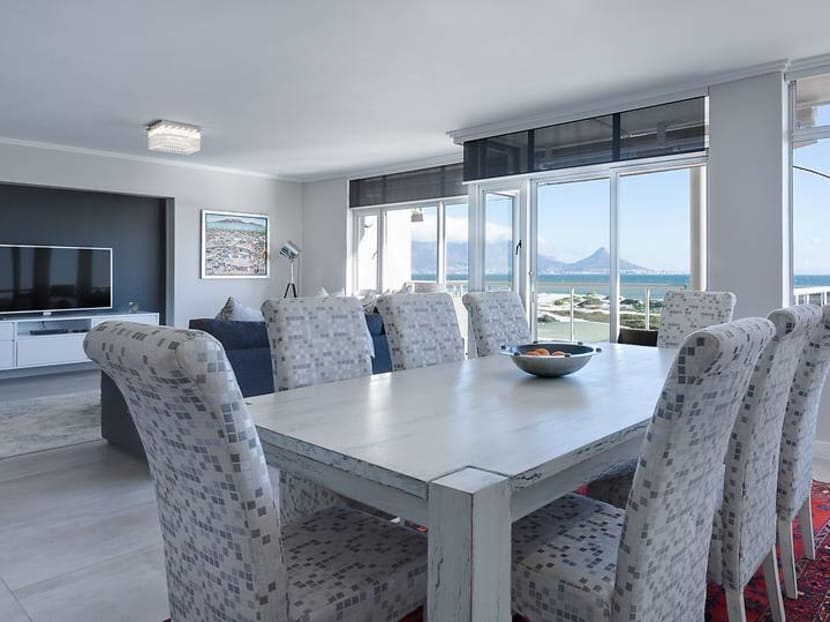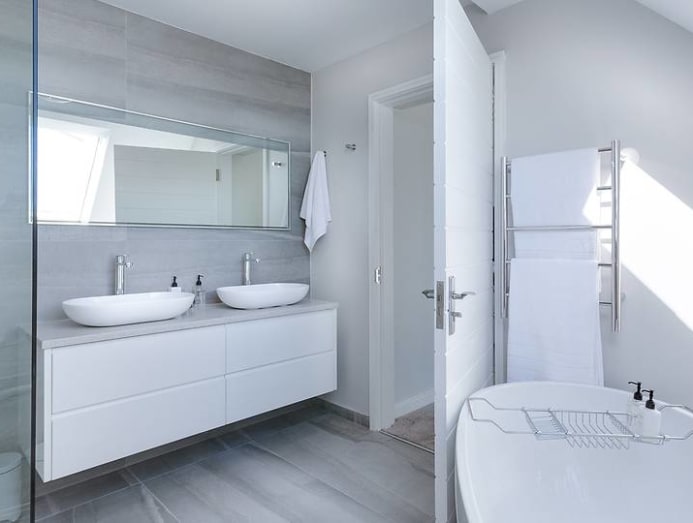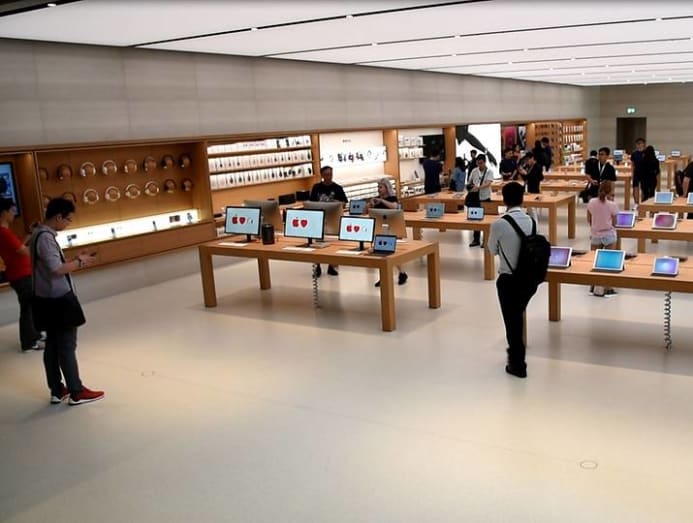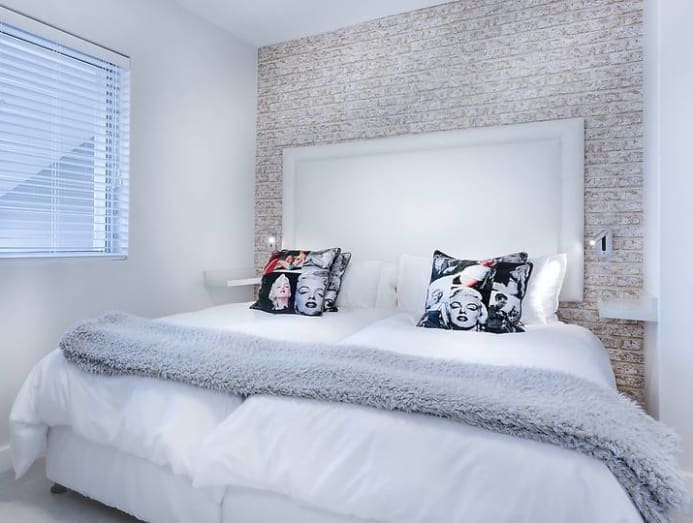Commentary: Is a minimalist home the route to personal success?
Advertizing
Singapore
Commentary: Is a minimalist home the road to personal success?
Minimalism is touted as a home makeover concept that brings clarity and simplicity to our lives. But, asks NUS Professor Leonard Lee, is information technology nigh how nosotros want to live or how nosotros want to exist seen?

A minimalist living room. (Photograph: Pixabay)
eleven Mar 2022 06:33AM (Updated: 03 Jul 2022 07:39AM)
SINGAPORE: For many homeowners, the Chinese New year period is traditionally a time of year to comport out a spring clean, accept the opportunity to chuck out unnecessary clutter, or think about a complete makeover of their homes.
Habitation magazines and websites are filled with advice on "tasteful" holiday décor and tips on how changes to our homes tin make them more than liveable, desirable and conducive to improving our overall well-existence.
As living spaces become smaller, a growing theme of these articles is a focus on minimalism, especially in the form of Japanese- or Scandinavian-inspired décor. A make clean, elementary and uncluttered home leads to a clean, unproblematic and successful life – or so the general message apparently implies.
Japanese author and organisation consultant Marie Kondo's books take sold in the millions, promoting what she promises is the "life-changing magic" of decluttering. In her books, she advocates that an ordered, minimalistic arroyo to home life leads to a calm and motivated mindset, clarity of thought, greater productivity and eventual happiness.
It's a sight in stark dissimilarity to the homes of mine and my friend's grandparents that are piled loftier with mementoes, trinkets and ornaments - in other words, the complete antithesis of minimalistic living.
The traditional philosophy backside the Chinese New Year spring clean is near gaining a fresh start for a successful year alee. It is ofttimes also about presenting the best confront of our homes to visitors during the festive season.
Buying LESS BUT SPENDING More than
For many people, there is something inspiring almost living spartanly and not getting defenseless upward in the trap of excessive materialism. Withal minimalism, every bit it is generally espoused in today's style magazines, is rarely about fiscal frugality.
Often the desirable, aspirational manifestation of minimalism is virtually buying less just spending considerably more on select luxury purchases that sell at a premium. The idea is likewise that because you have fewer possessions, you lot should be able to have nicer, more expensive items.
It could exist argued that minimalism in this sense has less to do with simplifying and clarifying 1'south life and more than about displaying an aspirational image of luxury, prestige and success.

Certainly many consumer goods companies seem to recognise this and have shaped their marketing strategies accordingly. A growing number of premium brands have taken a minimalist approach to their identity.
Rather than emblazoning their products with assuming, brash, glitzy logos, they have opted for a more than subtle, understated path, appealing to consumers who see themselves as connoisseurs and "in the know" most particular trends.
One iconic brand that has successfully adopted the minimalist approach to loftier-finish retailing is tech behemothic Apple. Like its products, its stores effectually the world feature simple and clean lines and create an ordered, minimalist environment associated with prestige and aspiration.
Often located at busy shopping streets, Apple stores present themselves as a refuge from a harried, anxious crowd. Plenty of empty space conveys a sense of openness, whilst sleek white tables resembling laboratory desks reinforce Apple's brand value of inventiveness and its open up invitation to consumers to explore and experiment with its products.
Apple's approach has been highly profitable, and i which many competitors and interior designers have sought to imitate, viewing the clean, unproblematic and open environments of its stores equally encouraging innovation and creativity.

Simply does this human relationship between our surround and our behaviour stand up? Research suggests the psychology behind this is far from blackness and white.
MINIMALIST ENVIRONMENTS ENCOURAGE CONVENTION
A 2022 study by Us researchers, for example, found that being placed in orderly, uncluttered environments led people to stick to conventional and traditional choices. In another experiment, the researchers found that people in these environments likewise made decisions that were better for their wellness.
Yet, the researchers also found that disorderly environments were the ones that encouraged individuals to break with convention, seek novelty, and be more than creative and open to trying new things.
This raises an interesting question of what we value, what we call back should be encouraged and what defines well-beingness. In a fast-changing, disruption-driven economic system where innovation is increasingly valued, do we prioritise tradition and playing it safe over being more than creative, open up-minded and less conventional?
Indeed, if disorder encourages creativity, as the United states written report suggests, wouldn't a cluttered, matted Apple store actually attract more of the anti-conventional, creative types that Apple seeks?

That is unlikely to happen, but the point is that the relationship between our environments and our behaviours is nuanced and far from fully understood.
Some followers of minimalism may well find that decluttering of their habitation environments leads to greater clarity of thought and more productive lives.
Yet for others, minimalism may be driven less by concepts of order, frugality and inner well-existence and more than about managing impressions, projecting an aspirational image and presenting i's best face.
Leonard Lee is an associate professor and dean's chair in the Department of Marketing at the National University of Singapore (NUS) Concern School.
Contempo Searches
Trending Topics
Source: https://cnalifestyle.channelnewsasia.com/singapore/minimalism-declutter-equates-luxury-personal-success-214901

0 Response to "Commentary: Is a minimalist home the route to personal success?"
Post a Comment